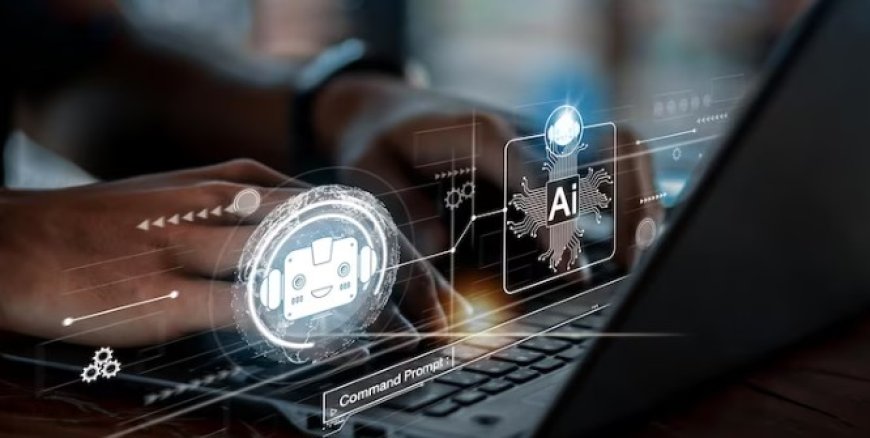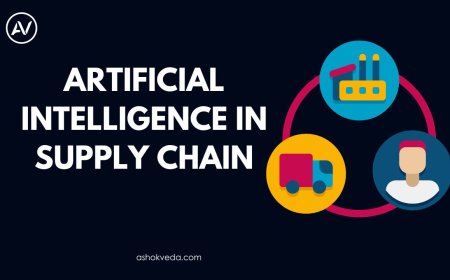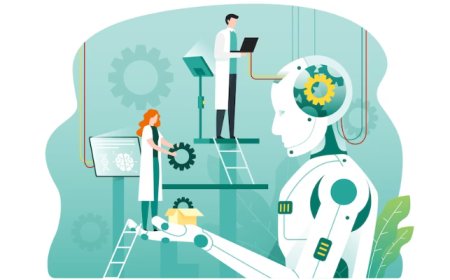The Evolution of AI Technologies
Explore the fascinating journey and advancements in AI technologies over time. Dive into the evolution of AI and its impact on various industries.

Artificial Intelligence (AI) has come a long way from its early days as a mere concept. Starting as a theoretical idea, it has evolved into a powerhouse that's reshaping entire industries.In the beginning, AI was just an idea floating around. Fast forward to now, and it's a game-changer in how we live and work. The journey involves understanding how AI moved from theory to practice, with practical implementations making it an integral part of various sectors. From early hurdles to breakthroughs, the path of AI is fascinating.
AI has deep roots, dating back to ancient times when thinkers dreamed of creating machines with human-like smarts. However, it took until the mid-20th century for AI to become a real thing. In 1956, at the Dartmouth Conference, a smart guy named John McCarthy came up with the term "artificial intelligence," kicking off formal AI research. Back then, they were into symbolic AI, where machines followed clear rules to copy human thinking. It was like teaching computers to think by giving them a set of guidelines. This was the starting point for the fascinating journey of AI!
The artificial intelligence field experienced a difficult period in the 1970s and 1980s known as the "AI winter." Due to challenges, determination waned. resulting in funding decreasing and expectations falling short. There was a slight deceleration. However, there was good news in the 1990s! Everyone was once again excited by advances in machine learning, particularly with neural networks. Imagine that large datasets and potent computers become accessible, creating the foundation for an exciting future in artificial intelligence. At that point, things started to get better and a new period of opportunities began.
Challenges and impacts of Evolution of AI Technologies
1. Ethical Dilemmas and Bias:
AI can pose ethical issues, especially if it learns from biased data. This could make existing societal biases worse, affecting decisions in hiring, lending, and law enforcement. It's crucial to ensure AI is fair and just for everyone.
2. Job Displacement and Employment Shifts:
As AI automates some jobs, there's a chance folks might need to find new opportunities. Though it could be a bit tricky, we can make it work by helping each other learn new skills and adapt to the changes.
3. Security and Privacy Concerns:
Keeping AI safe is a must. If not properly secured, it opens the door to cyber threats. Protecting the privacy and security of AI systems stops unauthorized access, data leaks, and potential misuse of important info. Stay safe in the modern world!
4. Lack of Explainability and Transparency:
Many advanced AI models, particularly in deep learning, operate as "black boxes," making it difficult to understand how they arrive at specific decisions. This lack of transparency hinders trust in AI systems, especially in critical applications like healthcare and finance.
5. Impact on Socioeconomic Inequality:
The benefits of AI technologies may not be evenly distributed, potentially widening socioeconomic gaps. Access to AI advancements, both in terms of usage and development, could be concentrated in certain regions or among specific demographic groups, leading to disparities in opportunities and outcomes.
It's essential to address these challenges proactively to maximize the positive impacts of AI while mitigating potential negative consequences.
Are you wondering about AI's magic? Just picture robots that are capable of independent learning in addition to rule compliance. That's machine learning, and it is revolutionary. Next is natural language processing, which allows machines to converse with and understand human language. An example of this would be your virtual assistant. Imagine computers being able to see and recognize objects; that is computer vision. Have you ever encountered reinforcement learning? Similar to how machines learn by making mistakes. Future developments such as self-driving cars and extremely intelligent chatbots are influencing this. AI is developing quickly, and it's not only about creating robots—it's also about enhancing the intelligence and usability of our technology. Are you prepared to explore the AI paradise?
Advancements in AI Technologies
1)Machine Learning and Neural Networks
AI got a boost thanks to progress in machine learning, especially the rebirth of neural networks. Deep learning, a part of machine learning, became a big deal for its knack to learn from data on its own. This sparked breakthroughs in recognizing images, understanding language, and tackling tricky tasks.
2)Natural Language Processing (NLP) and Conversational AI
Think of NLP as the tech wizard that lets machines get human language. From basic rules to fancy models like GPT-3, NLP changed how we talk to tech. Chatbots and virtual helpers (Conversational AI) are now part of our everyday life, making communication smoother and tech experiences better.
3)Computer Vision and Perception
Machines have a new skill – understanding what they see. Computer vision moved from recognizing faces to spotting objects. This tech isn't just for fun; it's used in health, cars, and security, making it a real game-changer.
4)Reinforcement Learning and Autonomous Systems
Inspired by how people learn from trying stuff, reinforcement learning helped machines do the same. This led to cool things like self-driving cars and smart drones. These machines learn on the go, making quick decisions based on what's happening around them.
The Future of AI Technologies
Looking ahead, AI is set to change the game in several exciting ways:
1. AI and Healthcare:
Picture this – AI stepping up in healthcare, making diagnoses and treatments a breeze. Smart algorithms can sift through tons of data, spotting diseases early and tailoring treatments just for you. With AI in our health systems, we're talking better outcomes for patients and savings on healthcare bills.
2. Ethical AI and Responsible Innovation:
Being responsible with AI is a big deal. As AI becomes a bigger part of our lives, we need ground rules. It's like having a playbook for fair and ethical tech. Finding the sweet spot between cool tech and doing what's right is the key to the future of AI.
3. AI and Climate Change:
AI isn't just about making our lives easier; it's got a role in saving the planet too. Imagine AI helping us use energy wisely and predicting natural disasters before they strike. Teamwork is key – we need to work together to make the most of AI in tackling climate change.
4. Human-AI Collaboration:
Here's the scoop – the future isn't about robots taking over. It's about humans and AI working side by side, each bringing something special to the table. From solving problems to pushing boundaries, this tag team of human-AI collaboration is where the magic happens. Get ready for a future where humans and tech join forces to make things awesome!
The journey of AI has been a rollercoaster, full of ups, downs, and exciting innovations. From its early days to today's smart machines, AI has completely changed how we live and work. Now, as we look ahead, how we develop and use AI responsibly will decide its impact on society. The AI story isn't a straight line; it's a dynamic journey influenced by tech, ethics, and society. Facing these challenges together, with careful thinking and collaboration, will help us unleash AI's full potential for the good of all. Let's make sure AI works hand in hand with humanity, making things better for everyone!





































